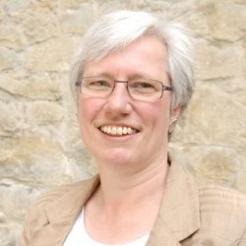Rosie Chapman, executive director of policy and effectiveness at the Charity Commission, has elected to take advantage of its voluntary exit programme and will leave the regulator at the end of May.
Chapman is the most senior employee to opt for voluntary exit so far, and the only director to do so. Altogether some 57 staff (51 full-time equivalents) have either agreed a voluntary exit in 2010/11 or are awaiting a decision for 2011/12. The Commission employs over 400 staff and has to find savings of around 30 per cent.
Chapman told Civil Society she decided to leave because she had been there ten years and felt it was time for a “change and a fresh challenge”.
“The organisation is taking stock and thinking about its direction going forward and I wish it well with that, but I wanted to put my energies into something new.”
She has nothing new lined up yet but is pursuing “one or two things”. She said she’d like to use her policy background within the sector somehow: “I wouldn’t rule out becoming gamekeeper-turned-poacher,” she said. “This is a sector that grabs you.”
Chapman has chosen to leave before the Commission’s chief executive Sam Younger outlines the new staff structure, so she doesn’t know whether policy will be given equal weight in the new constrained funding environment. “I’m sure policy will continue to be important but no decision has been made yet about the director structure and I wanted to make my decision in advance of that.”
Chapman joined the regulator as director of policy ten years ago. Along the way the role expanded to take in corporate affairs, performance and planning, and she said she was particularly proud of setting up the first corporate affairs function – “creating a more professionalised communications and public affairs function”. She was also proud of the way the policy function had evolved so that it is better informed by the sector: “We are now much more open to involving the sector in developing policy that is relevant.”
She served under three chief Commissioners/chairs: John Stoker, Geraldine Peacock and Dame Suzi Leather, and two chief executives: Andrew Hind and Sam Younger.
“It was thoroughly enjoyable but I’m now ready for a change and a fresh challenge,” she said.








